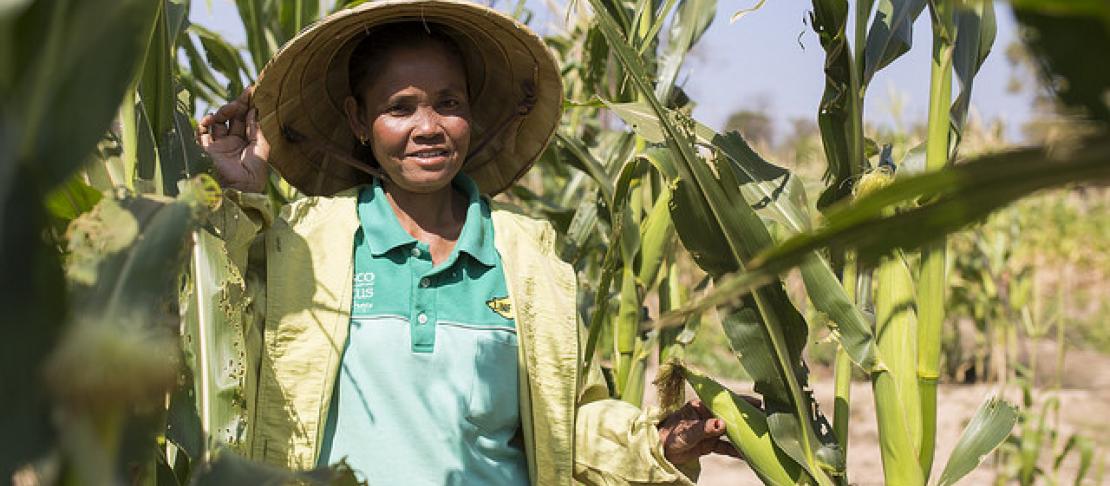Unleashing the potential of Vietnamese women farmers as change agents

Women in agriculture are among the most underrated laborers in the world. Despite playing a major role in agricultural growth and development, women’s efforts remain unrecognized.
According to the World Bank (WB), the ratio of males to females involved in agriculture is nearly equal in various Southeast Asian countries, such as Vietnam and Thailand; whereas, in other countries like Rwanda and Mozambique, the number of females involved in agriculture exceeds that of the males.
In this age when men flock to the cities in search of higher incomes, the wives are left to tend the farm. Although women have the first-hand experience in farming, still, they are not regarded as ‘farmers’, who, like their male counterparts, should be entitled to attend training programs and learn various technologies to help them improve agricultural productivity and increase resilience against climate risks.
Apart from farming duties, women need to do household chores and care for their children. In such cases, agricultural machines that are tailored according to women’s physical capabilities and limitations, and cater to their needs would have been extremely helpful. But this remains to be seen.
Gender equality is a key factor for improving farm productivity; recognizing and valuing women’s catalytic role will be necessary for broader agricultural development.
According to a study by Dr. Thelma Paris, former gender specialist at the International Rice Research Institute (IRRI): “There is an urgent need for research and priority setting to ensure that women benefit from modern agricultural technologies, rather than being disadvantaged by the implementation of technologies as what has often occurred in the past. Measures should be taken to ensure that modern agricultural technology will not undermine women's autonomy, but rather will help women to gain more autonomy.”
In the same study, which was jointly supported by the International Rice Research Institute (IRRI) and the Australian Centre for International Agricultural Research (ACIAR), Dr. Paris stressed the importance of developing gender-sensitive agricultural technologies and offering training programs tailored to the needs of women.
In the Mekong Delta Region of Vietnam, traditional rice varieties are at risk of extinction as high-yielding varieties continue to be favored for their shorter crop cycles. The CGIAR Research Program on Climate Change, Agriculture and Food Security in Southeast Asia (CCAFS SEA), in partnership with Vietnam’s Cuu Long Rice Research Institute (CLRRI) and the Department of Agriculture and Rural Development (DARD), organized a project to increase the production of the traditional rice variety Tai Nguyen in Tra Hat village. Tra Hat is one of the six Climate-Smart Villages (CSVs) in Southeast Asia, where climate-smart agriculture (CSA) practices are introduced to enhance food security and improve climate change adaptation and mitigation.
The CSVs are selected villages or cluster of villages that vary in terms of geographic conditions and are considered climate hotspots. Here, CSA interventions will be applied and tested for their local suitability and social sensitivity, and eventually, will be replicated in other villages.
Several training workshops on seed revival, seed production, harvest and post-harvest processing of Tai Nguyen were conducted in the village. Out of the 30 participants, only 7 were women. Despite the small number of women participants, a marked improvement in their knowledge on seed quality indicates huge potential and capability in seed revival and production. These results emphasize the importance of women farmers in seed production and crop management.
The officials of DARD, Chau Thoi commune, and Tra Hat village now value women’s contribution to rice production. Some women farmers have become active members of the Seed Production Teams in Tra Hat, which endeavors to produce high-quality seeds. Women’s involvement in seed production will lead to better seed selection skills and better pesticide management.
This research project builds a strong case that gender equality should really be taken to a higher level and that co-equal (men-women) partnership in agricultural production would lead to more gainful economic and social undertakings.
Read more
- From wives to managers: Tackling climate change with women farmers
- Project pioneers: Understanding how women farmers lead the way in mitigation activities
- What does it take to apply a gender-responsive approach to climate-smart agriculture
Meira Steffanie Andutan is an intern at the International Rice Research Institute.



